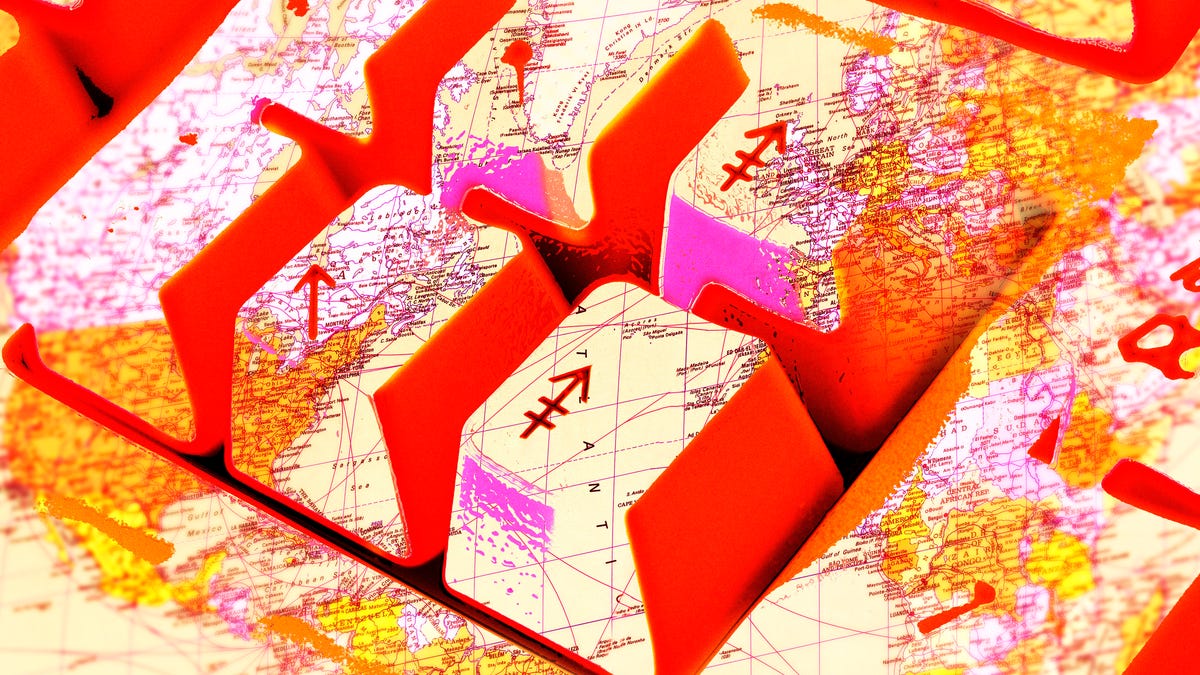The plan to connect everyone in the world by 2020 is already off the rails
Without cheaper devices and more affordable broadband plans, universal Internet access won't be possible until 2042, according to a new report.

Judging by the sea of laptops, tablets and phones around you, it's easy to assume that access to the Internet is ubiquitous.
It's not even close.
A new report on Internet affordability says the situation isn't going to get better anytime soon, despite a plan by the United Nations to bring the world online by 2020. Rather, the Alliance for Affordable Internet report suggests the UN will miss its target by more than 20 years.
The world's least developed countries will only reach universal Internet access by 2042, according to group's annual affordability report, which looked at the world's 51 poorest countries. If progress continues at the current rate, only 53 percent of the world will be online by 2020, and the world's poorest countries will only have managed to connect 16 percent of their citizens.
The report sheds light on the large digital divide that remains between wealthy and poor nations, as well as men and women. Universal access is seen as a way to close that gap, giving the disadvantaged a potential leg up. But if things continue as they are now, according to the report, more than an entire generation will be excluded from advantages associated with Internet access, including education, healthcare and banking, as well as opportunities to make money and be involved in political debate.
"This report must serve as a wake-up call," said Sonia Jorge, executive director of the Alliance for Affordable Internet. "If we are serious about achieving universal access by 2020, we need to condense almost 30 years worth of work into the next five years."
UN representatives didn't respond to requests for comment.
The report recommends redefining the idea of affordable Internet. Currently, it means offering a 500GB monthly broadband plan for a price equal to 5 percent of a country's average national salary. Politicians should instead aim to bring down the cost of a 1GB monthly plan to 2 percent of a country's average salary, said the report, describing it as the "affordability sweet spot."
Colombia and Costa Rica were recognized for dramatically improving affordability by prioritizing information and communication technology development through both policy and investment. Rwanda performed the best of all the least developed countries in the report and was praised for placing broadband rollout at the heart of its plans for socio-economic development.
The cost of buying an Internet-enabled device like a phone or tablet plays a large role in determining who can afford to get online, the report notes. When you add the average cost of a budget smartphone, which is around $48, and the cost of a 500MB broadband plan, the number of people who can afford Internet access falls by 20 percent. An allocation of 500MB per month, the report adds, "offers only very limited opportunities to use the Internet meaningfully."
Significant work needs to be done in bringing to bring the cost of devices down to $25. The report praised Huawei and Google's Android One program for making some headway, but more needs to be done both by manufacturers and governments, which have power over import taxes and other costs.
The digital gender gap
The divide between who can afford Internet access and who can't is not simply a split between the wealthy and the poor, it is also a divide between men and women.
"On average, women across the globe earn significantly less than men, meaning that the affordability barrier to access for women is that much higher than it is for men," said Jorge.
Women in poor urban areas are 50 percent less likely to be connected to the Internet than men of the same age with similar education, the report found. It recommended that governments make targeted efforts to help women in their countries gain access to the Internet.
Bringing women online will not only be good for their empowerment, but for the global economy. Ensuring more women have Internet access could bring an extra $170 billion to the mobile industry, according to a report by GSMA, a global telecoms organization.
"Closing this gender digital divide will contribute to global development and benefit generations to come," said Jorge. "To get there, we require policymaking that focuses on overcoming the unique access challenges faced by women."

